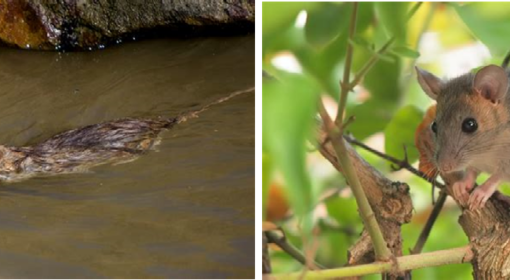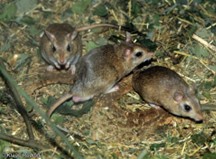By Sukru Esin
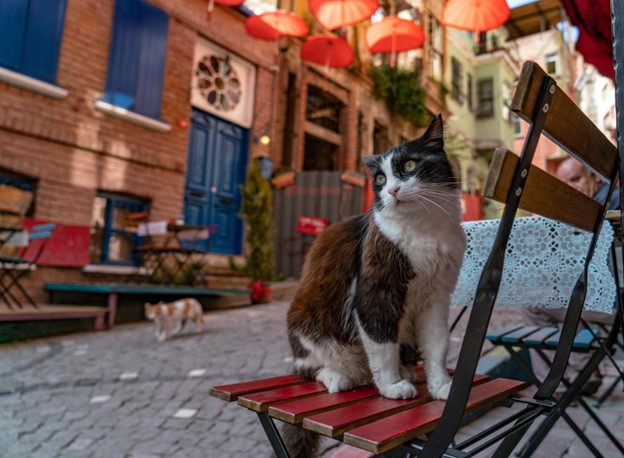
City life has unique challenges and delights – a vibrant atmosphere, diverse cultures, and bustling streets. Amidst this urban tapestry, Istanbul proudly stands as a city with a rich history and a distinctive charm, made even more special by its feline inhabitants.
In Istanbul, the love for cats is woven into the very fabric of daily life. The city, often affectionately called the “City of Cats,” is home to a thriving population of street-smart felines. Unlike other metropolises where rodent issues can cause concern, people of Istanbul have found a unique solution in their four-legged friends.
As you explore the city’s dynamic neighborhoods, it’s not just common but almost expected to encounter cats leisurely strolling or basking in the sun. These feline inhabitants have become an integral and beloved part of Istanbul’s allure. The people of Istanbul take pride in their city’s feline-friendly identity, creating a unique bond between residents and their furry companions.
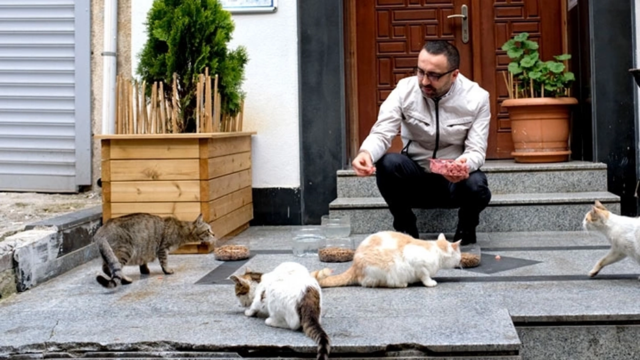
This love for cats goes beyond mere sentiment; it’s a communal commitment to caring for these four-legged neighbors. Residents in Istanbul actively contribute to this feline-friendly initiative by setting up feeding stations with water and cat food in green spaces. This collective effort showcases the city’s dedication to the well-being of its beloved guardians.
With its historical architecture and a blend of modernity and tradition, Istanbul provides an ideal environment for this harmonious coexistence. The watchful eyes and playful antics of the city’s cats testify to the understanding that living alongside these creatures enriches the urban experience.
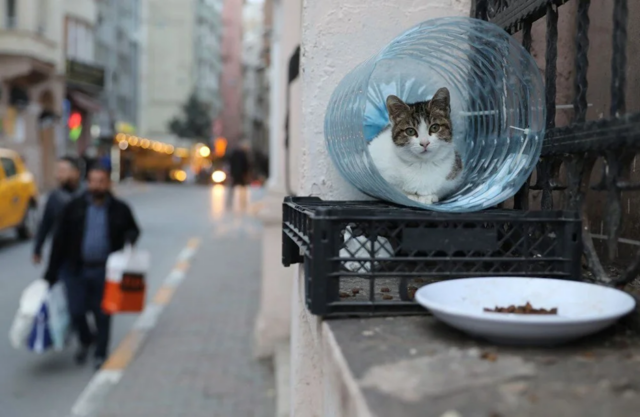
These cats have become silent guardians, creating a balance in the city’s ecosystem. Municipalities in Istanbul actively participate in this initiative, aligning with EBRM (Ecosystem-Based Rodent Management) principles. By leveraging the natural behaviors of cats as predators, the city has adopted a sustainable and environmentally friendly approach to pest control.
Moreover, Istanbul proudly showcases its feline-friendly identity through a famous cat sculpture in the Kadikoy district, a popular tourist attraction. This statue is a cultural symbol, emphasizing the city’s unique relationship with its feline residents and highlighting the importance of coexisting with the natural world.
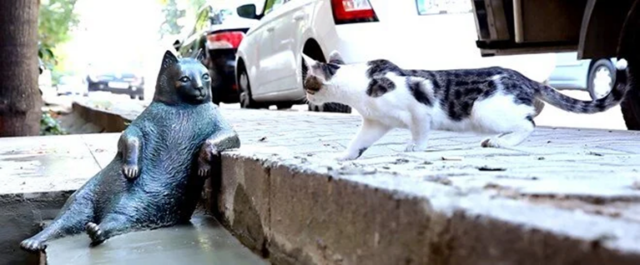
While Istanbul thrives in its harmonious coexistence with cats, other major cities face significant challenges in managing rodent populations. For example, New York City, known for its towering skyscrapers and vibrant energy, grapples with a notorious rat problem. Rats become an unwelcome part of the city’s narrative. Instances of rats scurrying through subway stations or boldly navigating crowded streets have become all too familiar, posing challenges for residents and authorities alike. Beyond the irritation, these rodents pose serious health risks. Rat-borne diseases, such as leptospirosis, have been reported, raising concerns for public health in New York.
Similarly, Paris, the romantic capital of France, also faces its share of rodent challenges. The city’s narrow alleyways and historic structures provide ample hiding spots for rats to thrive. Instances of rats emerging in public spaces or infesting specific neighborhoods have become a persistent issue. The health risks associated with these rodents include the potential spread of diseases such as leptospirosis and hantavirus in Paris.
As we navigate the challenges of urban living, Istanbul’s success with street cats stands out as a shining example of effective pest control. With its tale of cats and city life, Istanbul represents not just a place to live but a community that embraces its unique harmony with nature, standing in contrast to the health-related challenges faced by other major cities facing with rodent issues.
Reference:
https://www.nyc.gov/site/doh/health/health-topics/leptospirosis.page
